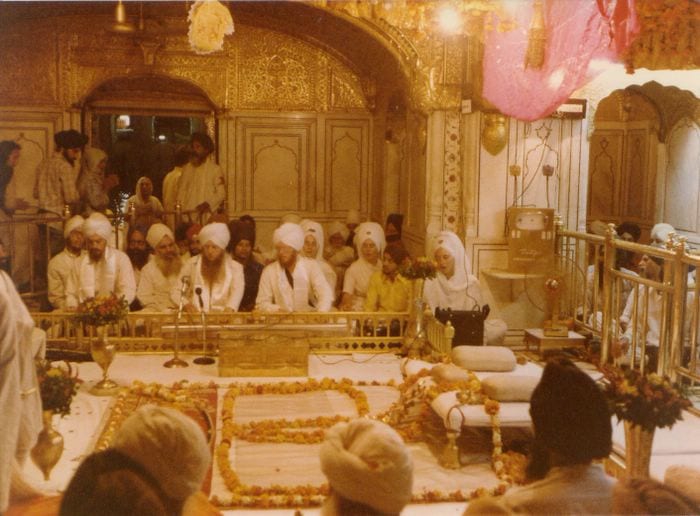Theme for the Week:
Tandoor or Tanoor? While looking for a restaurant in the Middle East to fill your stomach, if you see the word – ‘Tanoor’ in place of ‘Tandoor,’ do not think you are wrong or they have misspelt it. The two words refer to the same thing.
What if you experience something akin when reciting Gurbani? We come across some words in Gurbani, which have several forms but same meaning. Sometimes these variants may seem to be transposition errors or mispronunciations, like when you are reading ‘cavalry’ in place of ‘calvary’ in English.
The change in the forms of these words is NOT due to a printing error or grammatical inflexion. The reason for this is the evolution and change in language used during the medieval period when compositions of the Guru Granth Sahib were composed on the Indian sub-continent.
A single word could be used with slightly altered forms in different dialects or regional languages. As words from many languages and dialects are used in Gurbani, we can see more than one form of a particular word. This is called a linguistic inflexion. It happens in other languages as well. For example, ‘tusk’ was originally ‘tux’.
There is another view that opines that humans often make such transposition errors. Most of these errors are ignored in the flow of time, but there are instances when these mispronunciations become standard. This process, known as metathesis, happens in every language.
Well, this week we will feature five such Words That Will Surprise You and may seem misspelled or mispronounced.
Language is not an abstract construction of the learned, or of dictionary makers, but is something arising out of the work, needs, ties, joys, affections, tastes, of long generations of humanity, and has its bases broad and low, close to the ground. -Noah Webster, an American lexicographer and author, 1758-1843
ਤਨੂਰ (tanoor)
Meaning: noun: Tandoor.
Quote:
ਤਨੁ ਤਪੈ ਤਨੂਰ ਜਿਉ ਬਾਲਣੁ ਹਡ ਬਲੰਨਿ॥ ਪੈਰੀ ਥਕਾਂ ਸਿਰਿ ਜੁਲਾਂ ਜੇ ਮੂੰ ਪਿਰੀ ਮਿਲੰਨਿ॥
tan tapai tanoor jiu baalaṇ haḍ balaňnh.
pairee thakaaṅ sir julaaṅ je mooň piree milaňnh.


 May my body heat up like tandoor and my bones burn like firewood; if I tire of walking on feet, I shall walk on my head, if that is needed to meet my Beloved! -Sheikh Farid, Guru Granth Sahib, 1384
May my body heat up like tandoor and my bones burn like firewood; if I tire of walking on feet, I shall walk on my head, if that is needed to meet my Beloved! -Sheikh Farid, Guru Granth Sahib, 1384
Message: Baba Farid expresses the overwhelming intensity of his devotion and the anguish in his desire to meet the Divine. He describes these feelings using analogies ‘as a body heating up in an oven’ and ‘as bones burning like firewood’. He is even prepared to ‘walk on his head’, if this is the way to unite him with the Master.
Lest it be misinterpreted that self-penance like those mentioned above can be used as an answer to a seeker’s search for the Almighty, Guru Nanak Sahib, in the couplet that follows and complements the above, highlights that there is no need to undergo any penance or severities physically or mentally.
The Divine dwells within us. Search for Him within your own hearts and minds – this is where He dwells.
ਤਨੁ ਨ ਤਪਾਇ ਤਨੂਰ ਜਿਉ ਬਾਲਣੁ ਹਡ ਨ ਬਾਲਿ॥ ਸਿਰਿ ਪੈਰੀ ਕਿਆ ਫੇੜਿਆ ਅੰਦਰਿ ਪਿਰੀ ਨਿਹਾਲਿ॥
Do not heat up your body like tandoor, and do not burn your bones like firewood. What harm have the feet and head done? Behold the Beloved within your heart. –Guru Nanak, Guru Granth Sahib, 1384
Etymology: From Persian tanoor (the place for baking bread; a bake-house; tandoor, a clay oven).
Notes: The word tanoor appears only three times in Gurbani but in the same form, which shows that its modern variant tandoor was not yet in use.




